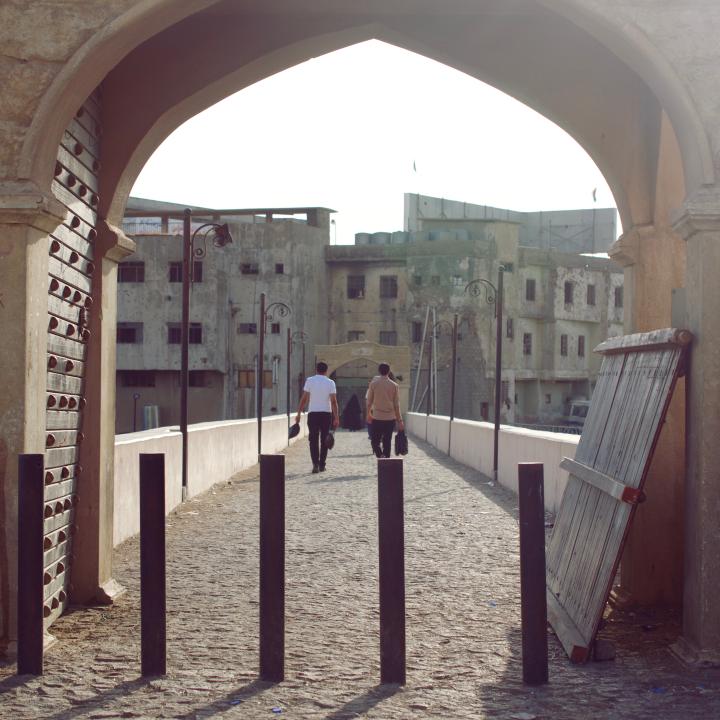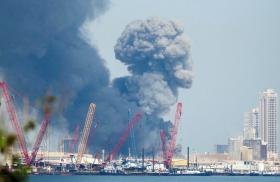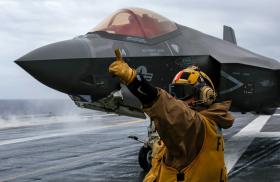
- Policy Analysis
- Fikra Forum
Ethnic Tension in Kirkuk Signals Fractures in Ankara-Erbil Relations

Longstanding tensions in the multi-ethnic city of Kirkuk in Iraq may once again spark confrontations between Turkey and the Kurdistan Region of Iraq (KRI), the latest in a series of disagreements over the city.
The most recent round of controversy centers around the reopening of the Kurdistan Democratic Party’s (KDP) former headquarters in Kirkuk. The move has brought boiling tensions among the ethnic groups to the surface; Arabs and Turkmens came together to protest the potential transfer while the Kurds organized counter-protests that resulted in several casualties after the harsh intervention of Iraqi security forces.
In the wake of the protests, the Kurdish Regional Government (KRG) defended the decision, claiming that the city was a part of “Kurdistan.” Turkey, which plays the role of protector of the Turkmen in Iraq, likewise emphasized the importance of Kirkuk in terms of Iraq’s integrity, while calling the city a “Turkmen homeland.”
Despite Turkey’s generally cordial relations with the Barzani family-led KDP and KDP-dominated KRG—especially when it comes to the fight against the PKK on Iraqi soil, politics, and trade—Kirkuk’s consequential provincial elections (scheduled for December 18) are likely to fuel the unrest among the various ethnicities and put Ankara-Erbil relations to a critical test.
Point of Conflict
Per the 2005 Iraqi Constitution’s Article 140, Kirkuk is one of the “disputed areas” between the Iraqi central government and KRG. To determine its official status, the article set forth a number of provisions such as the reincorporation of outlying districts into Kirkuk governorate, a census, and ultimately a referendum on whether the city joins Erbil or Baghdad. However, the Turkey-backed Iraqi Turkmen Front (ITF) openly opposes the implementation of Article 140 and Kirkuk’s absorption into KRI territory, describing the period between 2003 and 2017—when the Kurds ruled the city together with the Iraqi central government—as “insecure, unstable, and dark days.”
It is obvious that Turkmens who are part of the larger Iran-backed Hashd al-Shaabi presence in the city will not support the return of the Peshmerga. But the ITF also opposes the Peshmerga’s return to Kirkuk, which came under the control of the Iraqi army and the Hashd al-Shaabi following the KRG’s ill-fated 2017 independence referendum. Despite its opposition to the presence of these forces in Kirkuk, the ITF never openly criticizes Arab parties or (most importantly) the Hashd al-Shaabi as it does the Kurds. The lack of criticism is particularly notable since Iranian-backed militias have attacked Turkey's military base in Mosul and often threaten Ankara. The ITF does this delicate dance not only due to their fear of the Hashd al-Shaabi, which holds considerable power in the city, but also owing to the presence of Shia Turkmen in this force. However, Iran's growing presence in Kirkuk via the Hashd and Shia Turkmen units loyal to it also undermines Turkey's plans to establish influence in the city and disrupts its attempts at establishing Turkmen unity.
Due to the close relationship with the KRG, Turkey does not publicly condemn the return of the Peshmerga to Kirkuk or the city’s potential inclusion into the KRI. But the actions of Turkey’s allies speak to its true position on the issue. The fact that the ITF leader openly criticizes the Kirkuk policies of both the KDP and Patriotic Union of Kurdistan (PUK) while robustly advocating for Kirkuk to be part of the central government speaks volumes. Remembering the repercussions of the referendum, Turkey fears that Kurdish possession of oil-rich Kirkuk would help achieve a level of economic independence that would once again motivate political secession attempts.
Ankara also uses Kirkuk as a political tool; support for the Iraqi Turkmen is massively popular domestically. Nationalists and conservatives both from ruling and opposition parties in Turkey advocate for Turkmen and reaffirm the historical importance of Kirkuk in moments of crisis. Nevertheless, the fact that Turkey focuses on Turkmen in Kirkuk rather than the Turkmen community in Erbil indicates that it accepts Kurdish control in this part of the country. This close relationship is on full display through Turkey's permanent military bases in KDP-controlled Duhok and Erbil, its ability to conduct air and ground operations against the PKK as it wishes, and the KRI's remarkably tolerant attitude towards them. Again, the ITF Erbil cadre’s friendliness towards the KRG and the lack of criticism—in contrast to the Kirkuk branch—show how the ITF's Kirkuk and Erbil policies are contradictory and reflect Ankara's diverging policy towards these regions.
But Turkish opposition to a resurgence of Kurdish control in Kirkuk also appears to have teeth. Turkish Foreign Minister Hakan Fidan’s recent statement supporting “equal representation and participation of all segments” in Kirkuk’s administration reveals that Ankara envisions something other than Article 140 in mind for the city. Moreover, Turkish President Recep Tayyip Erdoğan warned that they “will not allow this geography's peace and integrity to be disrupted" calling Kirkuk “the Turkmen homeland.”
Nor is the KRG backing down. Following the ethnic tension in Kirkuk, the KRG introduced an official postal stamp displaying a Peshmerga statue and KRI flag, with “Kirkuk is Kurdistan” written below. This timely move explains in no uncertain terms how the KDP positions the city in terms of the Kurds. Of note, the KRG often asks for the implementation of Article 140 and considers the city within the “Kurdistani Areas Outside the Region”, while Kurds—and especially PUK politicians—highlight that “Kirkuk is the Jerusalem of Kurdistan.”
This sharp difference between Ankara and Erbil indicates that despite their frequently cooperative relationship, Turkey’s attitude toward the KRI, Kirkuk, and the Turkmen population can change drastically, as it did in the referendum. The constantly-shifting relationship between Erbil and Ankara indicates a lack of trust based on an established set of common interests. Rather, both sides have taken a pragmatic approach, cooperating only when their interests overlap, such as oil exports, trade, and operating against the PKK. President Erdoğan's close relationship with KRG President Nechirvan Barzani—who stands out with his moderate political attitude compared to KRG Prime Minister Masrour Barzani known for nationalist stances like his father—further points to Ankara's expectations from Erbil.
On the Edge of Crisis
If Kirkuk’s Turkmen want to further their political aspirations, they cannot do so outright. Of the 41 seats available in the 2005 provincial elections, Kurds won 26, Turkmen took nine, and Arabs secured six. Turkmen eventually lost one of the three seats they won in the 2018 parliamentary elections to the Arabs in 2021. Despite this demographic disadvantage, Turkmen can influence the balance of the new provincial council by forming strategic partnerships that can influence the election of the new governor and critical positions in the city.
Despite this political avenue, the possibility of electing a Kurdish governor after the provincial elections and the return of Peshmerga to the city could set off more intense protests in the city. Confrontation between ethnic groups could trigger the harsh intervention of the security forces, and thus regionalization of the issue. Tensions in Kirkuk could spiral into a crisis for Ankara-Erbil relations, especially since it builds on festering disagreements between Baghdad and Erbil, such as the budget and the halt of Kurdish oil exports to Turkey. In this case, Ankara, which does not have effective means of influence in the city like Iran, may simply threaten to make military interventions in the city under the pretence of protecting Turkmens and rooting out alleged PKK elements. In fact, the recent attack at an airport in Sulaymaniyah killing the PUK’s Counter-Terrorism Group (CTG) members—which an Iraqi official suggests are from a drone from Turkey—has put a spotlight on the growing extension of Ankara's operations against the PKK, despite Turkey not claiming the attack.
As for the KRG, gaining control of Kirkuk will not be an easy feat either. In the face of Iran and Turkey—both regional powers pleased with a government-controlled Kirkuk—it would be difficult to regain control of the city without a global power on its side. Moreover, internal divisions within the Kurdish government may be enough to derail its ambitions; KDP-PUK cooperation has reached its lowest point since 2003, and the parties will enter the provincial elections in Kirkuk on separate lists in contrast to the joint list put forward in 2005–the last time provincial elections were held in the city.
While it is actually possible for Turkey to take advantage of the competition between the KDP and the PUK and push a Turkmen-KDP coalition to elect a Turkmen governor, it is also plausible that the PUK, which is close to the Iranian-backed Shia parties, cooperates with Arab and Turkmen parties instead. However, both scenarios will certainly benefit the Kurds less than the KDP-PUK unity. Arab and Turkmen actors will be free to stall the Peshmerga’s return to Kirkuk or the implementation of Article 140.
If the elections in Kirkuk are not postponed in order to prevent a possible crisis, the focus should be on managing the provincial elections in a transparent manner with UN mediation. And in case of a governor change, it should be delivered peacefully to the winning party. Otherwise, the possible tension after the provincial elections, which have the power to reshuffle the balance in Kirkuk, may have dire consequences that are greater than those in the transfer of the KDP building and reminiscent of the aftermath of the referendum.


